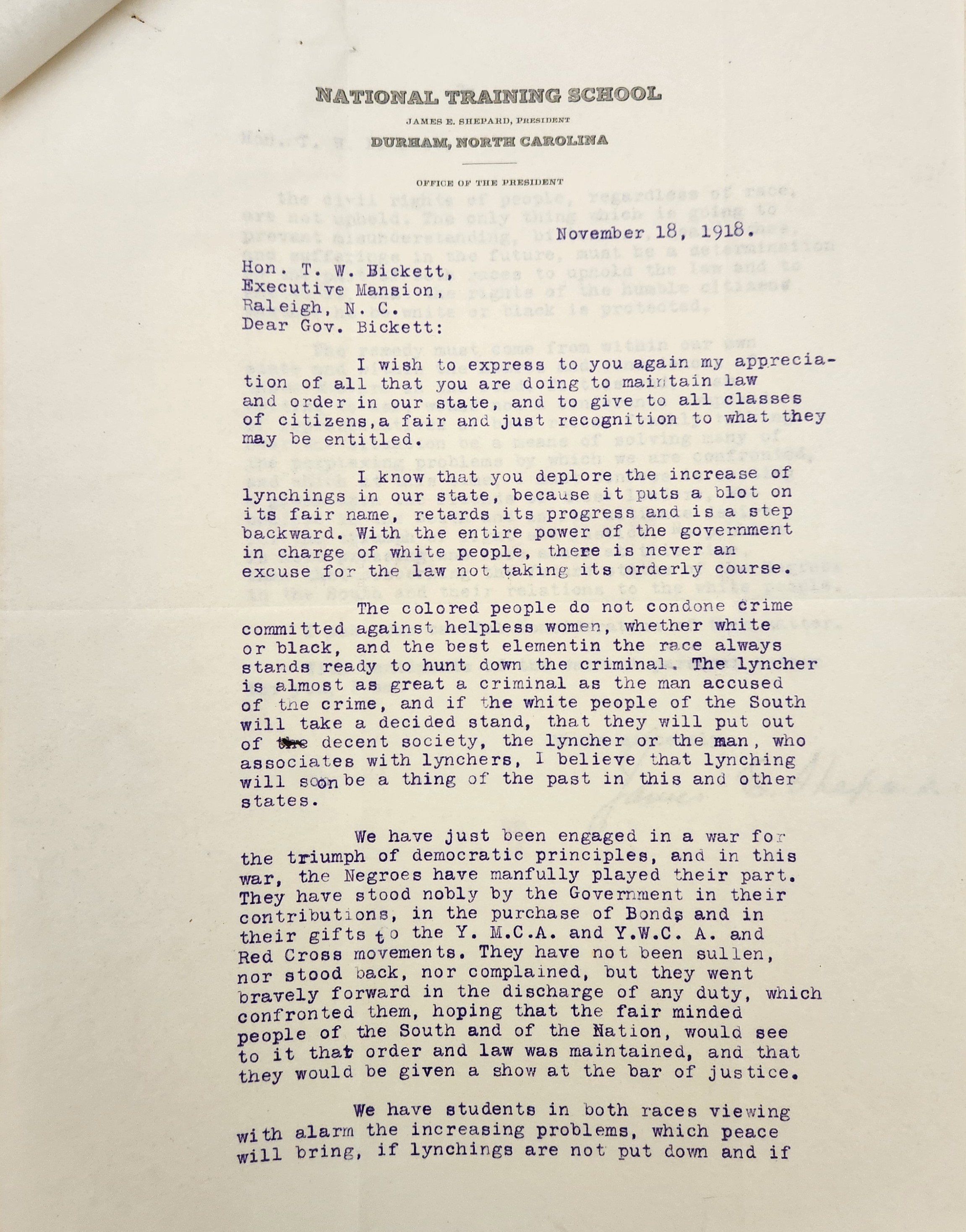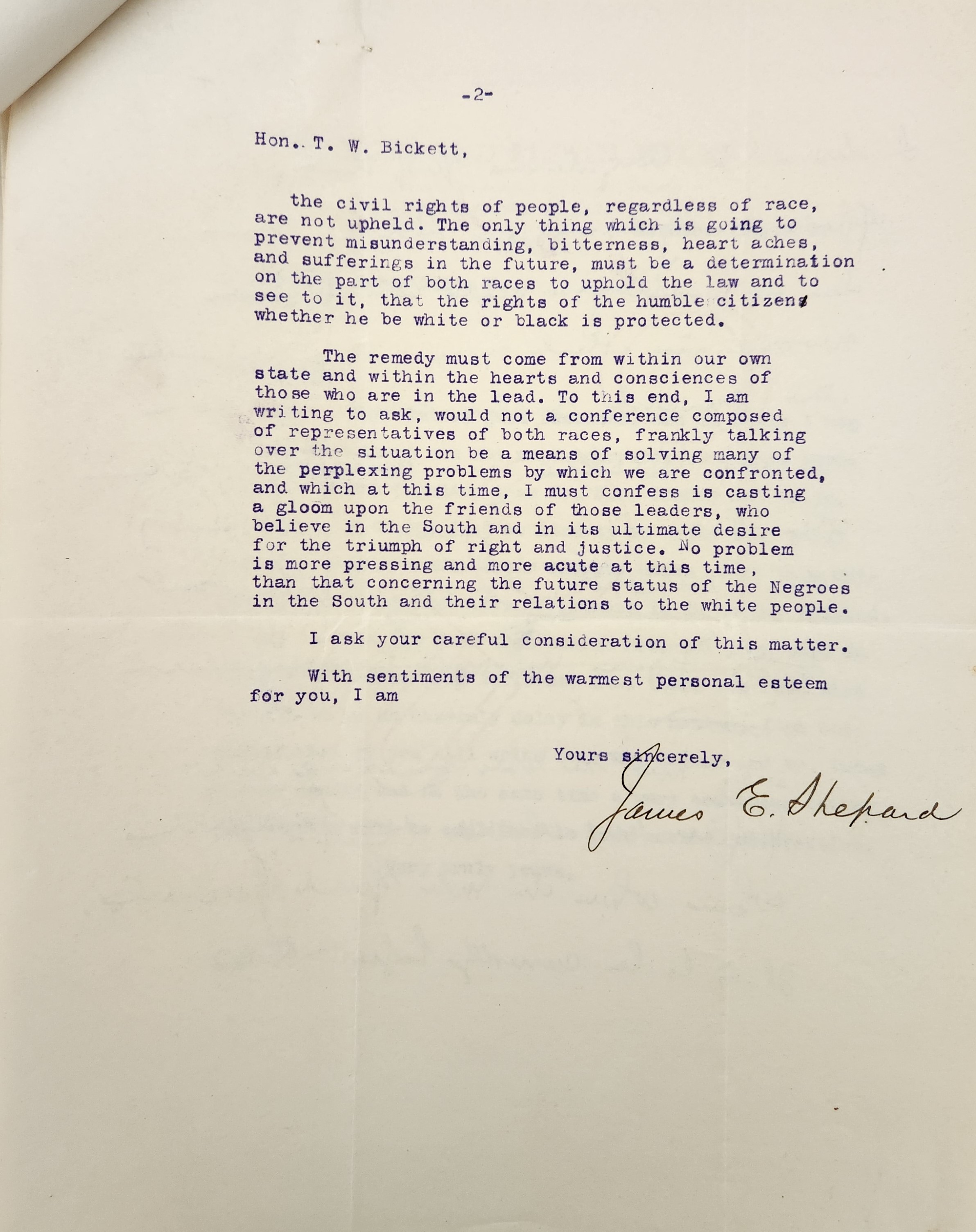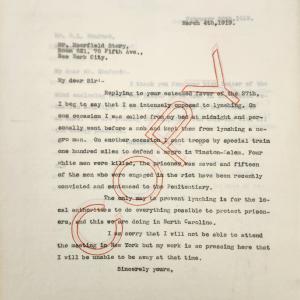NATIONAL TRAINING SCHOOL
james e. shepard, president
DURHAM, NORTH CAROLINA
office of the president
November 18, 1918.
Hon. T. W. Bickett,
Executive Mansion,
Raleigh, N. C.
Dear Gov. Bickett:
I wish to express to you again my appreciation of all that you are doing to maintain law and order in our state, and to give to all classes of citizens, a fair and just recognition to what they may be entitled.
I know that you deplore the increase of lynchings in our state, because it puts a blot on its fair name, retards its progress and is a step backward. With the entire power of the government in charge of white people, there is never an excuse for the law not taking its orderly course.
The colored people do not condone crime committed against helpless women, whether white or black, and the best elementin the race always stands ready to hunt down the criminal. The lyncher is almost as great a criminal as the man accused of the crime, and if the white people of the South will take a decided stand, that they will put out of decent society, the lyncher or the man, who associates with lynchers, I believe that lynching will soon be a thing of the past in this and other states.
We have just been engaged in a war for the triumph of democratic principles, and in this war, the Negroes have manfully played their part. They have stood nobly by the Government in their contributions, in the purchase of Bonds and in their gifts to the Y.M.C.A. and Y.W.C.A. and Red Cross movements. They have not been sullen, nor stood back, nor complained, but they went bravely forward in the discharge of any duty, which confronted them, hoping that the fair minded people of the South and of the Nation, would see to it that order and law was maintained, and that they would be given a show at the bar of justice.
We have students in both races viewing with alarm the increasing problems, which peace will bring, if lynchings are not put down and if the civil rights of people, regardless of race, are not upheld. The only thing which is going to prevent misunderstanding, bitterness, heart aches, and sufferings in the future, must be a determination on the part of both races to uphold the law and to see to it, that the rights of the humble citizen whether he be white or black is protected.
The remedy must come from within our own state and within the hearts and consciences of those who are in the lead. To this end, I am writing to ask, would not a conference composed of representatives of both races, frankly talking over the situation be a means of solving many of the perplexing problems by which we are confronted, and which at this time, I must confess is casting a gloom upon the friends of those leaders, who believe in the South and in its ultimate desire for the triumph of right and justice. No problem is more pressing and more acute at this time, than that concerning the future status of the Negroes in the South and their relations to the white people.
I ask your careful consideration of this matter.
With sentiments of the warmest personal esteem for you, I am
Yours sincerely,






